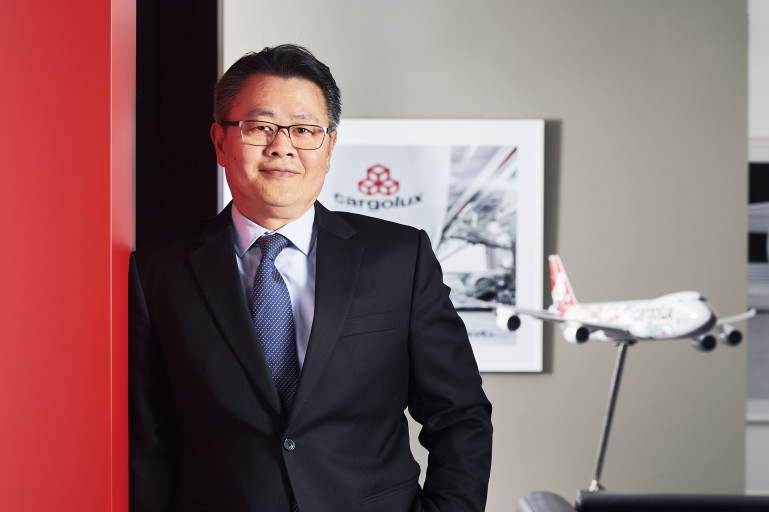As is , Cargolux has been among the “winners” of the pandemic: the freight airline posted record numbers in 2020--to the tune of €637m in profits. These results nearly quadruple the previous record year of 2018, and are about 32 times higher than profits from 2019.
The boon came as the company celebrated its 50th year. Back in 1970, the firm had just one airplane, whose first job was flying from Stockholm to New York to pick up strawberries and iceberg lettuce.
Half a century later, Cargolux operates a fleet of 30 planes and has offices in 50 countries. Despite this internationality, CEO Richard Forson comments that the airline “is deeply rooted in its home country.”
“Cargolux sees itself as an ambassador for Luxembourg,” he adds.
The future in two projects
Currently, digital transformation and sustainability are high on the Cargolux agenda.
Regarding the former, says Forson, “Cargolux is currently modernising its IT platforms and continuously enhancing the security of its digitised information.”
For the latter, he comments: “We are looking at all options of reducing our carbon footprint, including the acquisition of new generation widebody freighter aircraft and at projects involving the production of sustainable aviation fuel.”
“Sustainable aviation fuel” is a blanket term for aviation fuels that are not fossil-derived. These could come from animal fat, cooking oils, algae, corn grain or even garbage. “A near term opportunity we think is most interesting is to take the landfill gas, the methane that is emitted, collected, and either flared or used for making electricity or other things, to convert that into sustainable aviation fuel,” said SkyNRG Americas CEO John Plaza in with Aviation Today.
Many of these fuels, and their benefits, are still in the development phase. According to the International Air Transport Association, however, they could represent reductions in CO2 lifecycle emissions of up to 80%.
